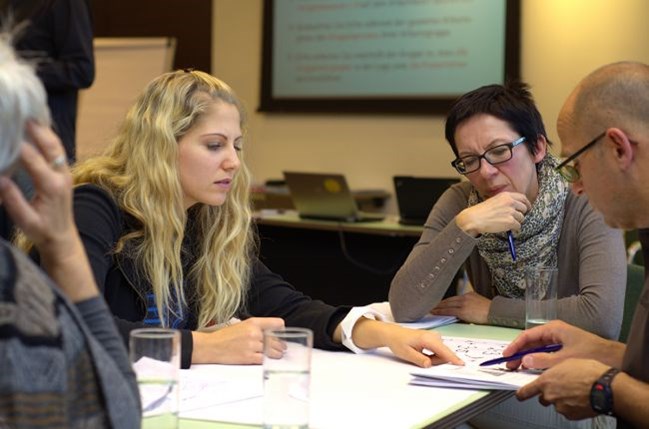Following the development of a commissioning policy for a cutting-edge procedure to allow profoundly deaf children to hear, NHS England’s Highly Specialised Commissioning team needed procurement support to establish an Auditory Brain Implantation service to enable an estimated nine children per year to receive this life-changing surgery.
Arden & GEM’s award-winning team was selected to work in close partnership with NHS England, clinical experts and patient representatives to award a three-year contract to two centres in London and Manchester.
The challenge
Auditory Brain Implantation (ABI) is a pioneering brain surgery for children, aged five and under, who are profoundly deaf and unable to use conventional hearing aids or implants because their cochlea or auditory nerves didn’t develop properly. The surgery bypasses the abnormal cochlea and auditory nerve by inserting a device into the brain to stimulate hearing pathways.
The cutting-edge procedure was performed six times within the NHS under interim commissioning arrangements but a longer-term solution was needed to improve clinical effectiveness and outcomes while delivering greater stability and financial sustainability.
Following NHS England’s Highly Specialised Commissioning team’s publication of a commissioning policy for the service in 2017, support was needed to procure the highest quality service, with high levels of clinical expertise for this complex surgery.
Our approach
Arden & GEM’s procurement team, who have delivered a number of complex projects on behalf of NHS England Specialised Commissioning, was approached to help develop a service strategy and design and manage of the procurement process.
Developing a service strategy
Given the small number of children needing this surgery, it was determined that concentrating and accumulating clinical expertise within a multidisciplinary team was a key priority. A centre allocation strategy was developed to determine the most appropriate number of centres across the country.
As a result, the objective of the procurement was to select two paediatric ABI centres to establish the new service, support the development of clinical expertise and experience and ensure that appropriate outcome reporting, monitoring and clinical governance structures were in place.
Designing the procurement process
The procurement process was designed to take into account the results from the extensive pre-process engagement and consultation – which included lead clinicians and patient and public representatives – and the narrow provider base available. In May 2018, suitably qualified providers were invited to bid for the two contracts in an open process organised in multiple stages.
Procurement governance and process
The procurement was managed through two levels of governance:
- the governing and oversight body of NHS England Specialised Commissioning – who approved the procurement strategy and the final outcome against the proposed strategy, and
- a dedicated project group panel.

To effectively run the procurement process, from project initiation to contract award, a project group panel was established bringing together commissioning leads, patient and parent representative, procurement, clinical, finance, quality and information governance expertise.
Given the highly specialised nature of this service and the small number of specialists across England able to support the project, it was imperative to secure independent clinical input into the process. This was achieved by bringing a European professor –an international expert in this area – onto the project group.
Ensuring that patients and their families were represented within the panel was a challenge given this was a new service for very young children. The Cochlear Implanted Children’s Support Group (an independent, voluntary group run by parents whose children have cochlear implants) was contacted for support and they were able to recommend a patient representative.
"I was delighted to be the patient representative on the panel as I have passionately believed for many years that there should be ABI programmes in England. I was impressed by the diversity of experience of fellow panel members and the willingness to involve an experienced professor from Europe. It is easy to complain about how slowly NHS wheels turn, but this process made it clear to me that for these decisions that can lead to life-changing outcomes, it is vital to be completely thorough."
Tricia Kemp, Patient Representative
Having independent clinical and patient representation within the project group ensured the process was child-focused and informed by international evidence and best practice.
The panel, who met monthly, was also involved in all stages of the procurement, including drafting service-specific procurement questions and undertaking the evaluation and moderation, to make the process as robust and inclusive as possible.
The outcomes
A high quality, affordable and family-centred ABI service has been established at Guys and St Thomas’ NHS Foundation Trust and Manchester University NHS Foundation Trust. The geography of the two centres will enable good accessibility and country-wide coverage across England. While concentrating expertise and experience within two centres is expected to improve clinical effectiveness, service delivery, patient experience and consequently outcomes.
The detailed service specification, and the engagement processes which underpinned it, will ensure service consistency. Reporting against KPIs and clinical outcomes, which will be subject to annual review and audit, will support ongoing contract monitoring and compliance.
The service will also enhance the development of clinical networks and engagement with local services to support individual children, within their home, social and educational settings.
It is estimated that about 15 children will be assessed for the procedure each year, with an estimated nine being considered suitable for surgery.
"This process demonstrates the importance of collaborative, multidisciplinary working within the NHS and beyond. Project planning and governance as well as process diligence were the key ingredients that helped us select two national expert centres to deliver this very complex surgery. The surgery is life-changing for young children who are Deaf and outcomes like this show the true meaning of working for the NHS."
Fiona Marley, Head of Specialised Commissioning at NHS England
